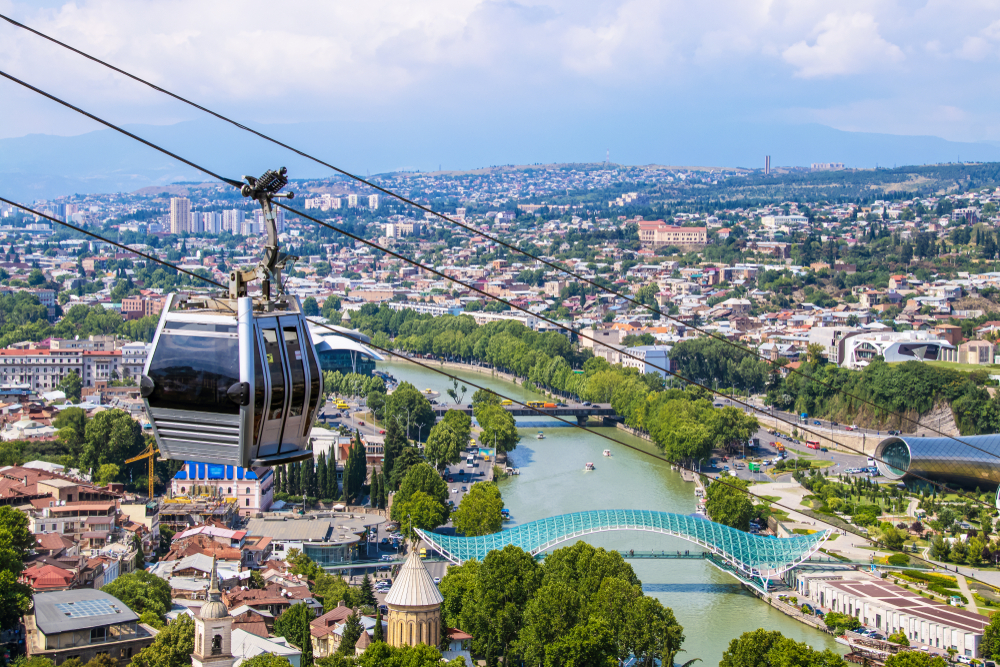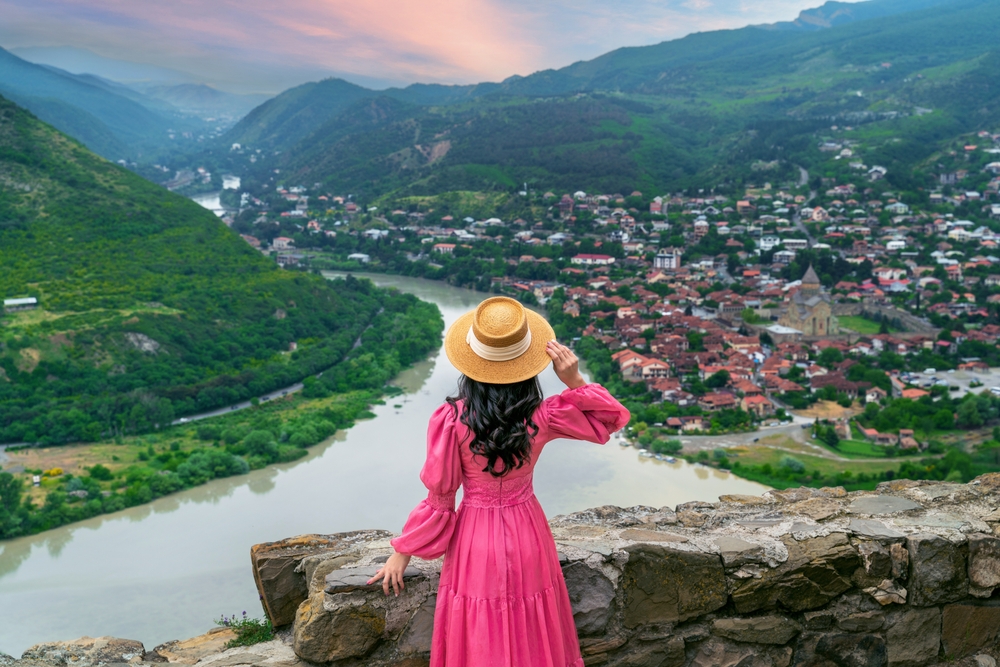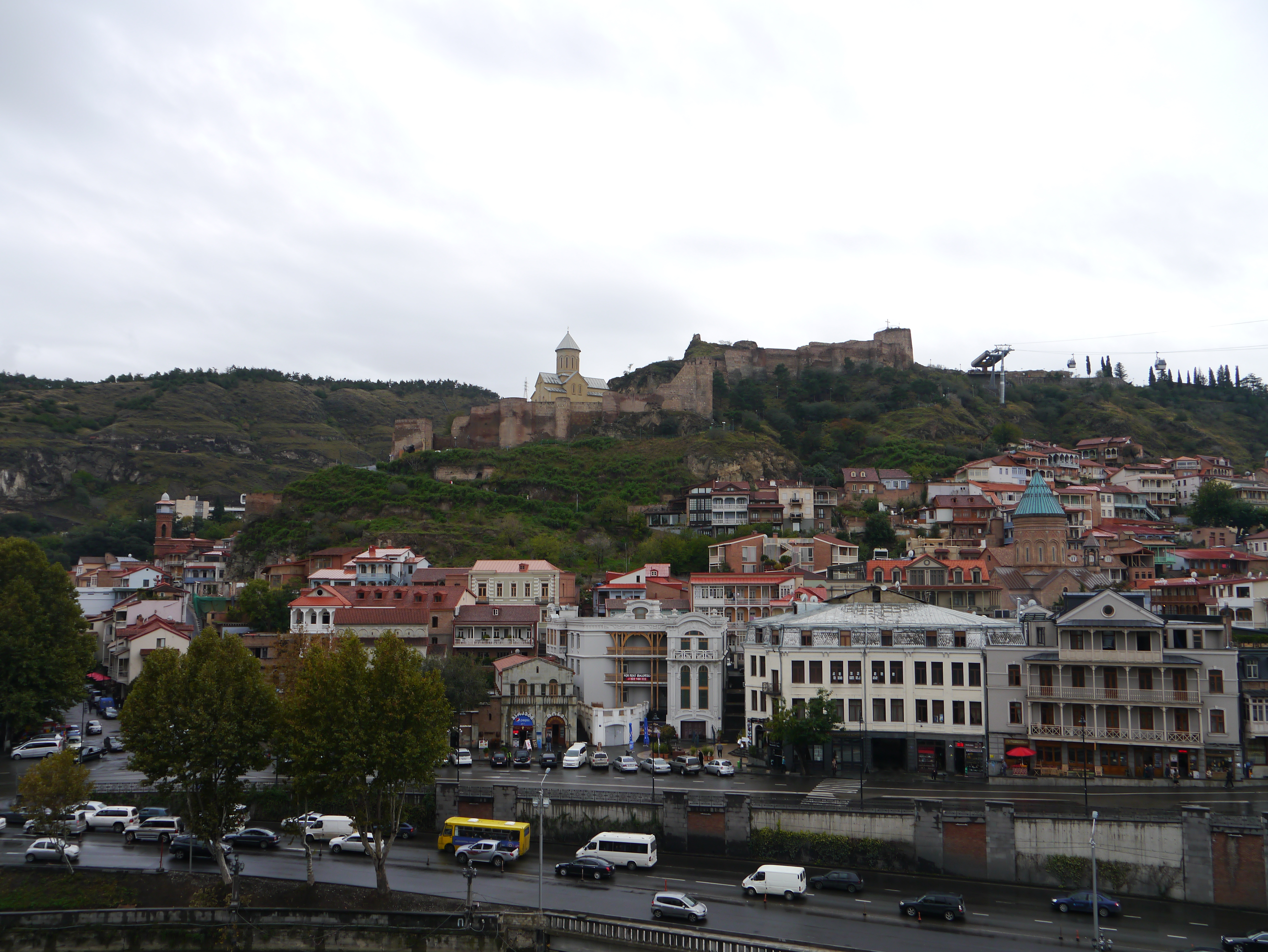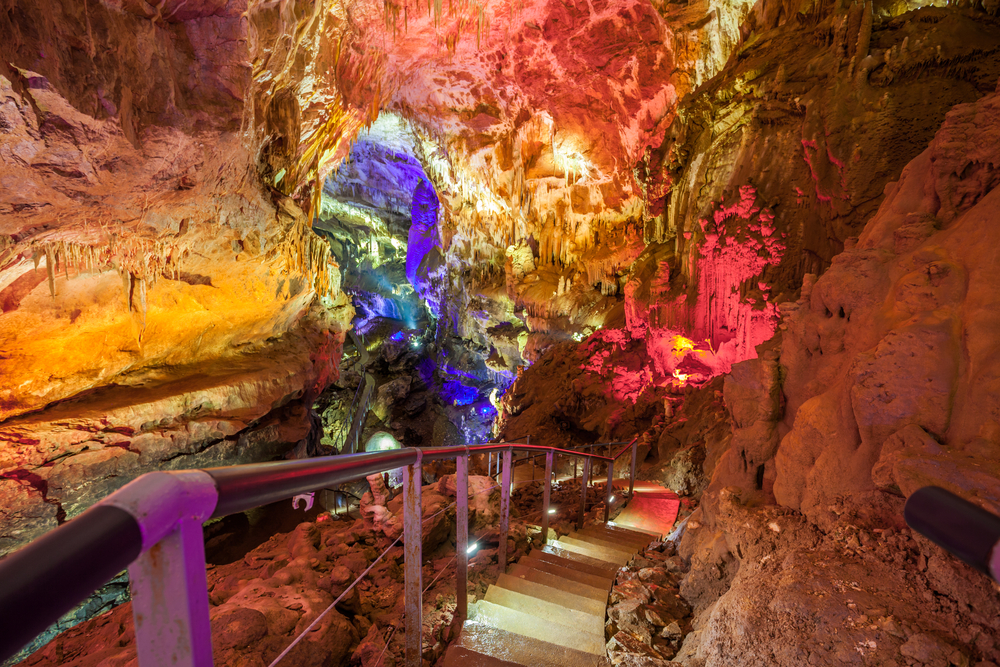- Details

The Republic of Georgia, strategically located at the crossroads of Europe and Asia, plays a crucial role in the South Caucasus. This vibrant nation is rich in history, culture, and economic potential, serving as a bridge between various civilizations. The dynamics of Georgia's relationships with its neighbors and its aspirations on the global stage are essential to understanding the broader implications for Central Asia. This article explores the multifaceted role of Georgia in the Caucasus region, its interactions with neighboring countries, economic ties, Soviet influences, and its future aspirations, particularly concerning the European Union.
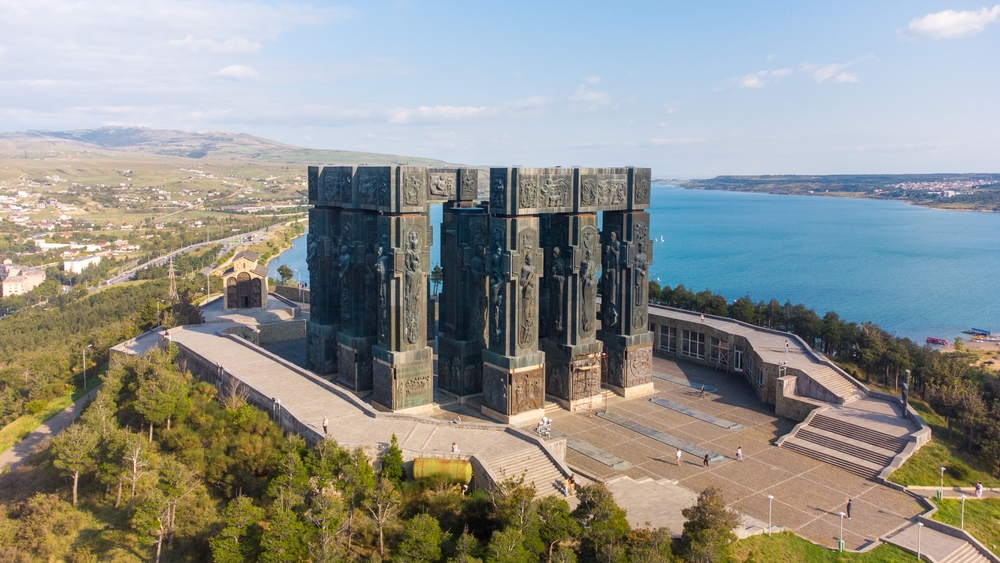
What is the role of Georgia in the Caucasus region?
Historical significance of the Republic of Georgia
Georgia boasts a rich historical tapestry that dates back to the ancient Kingdom of Georgia, which played a pivotal role in the cultural and political affairs of the Caucasus. Throughout centuries, various empires, including the Russian Empire, have sought to exert influence over this strategically located region. The historical significance of Georgia is highlighted by its resilience against invasions, including the more recent invasion of Ukraine which has shifted regional dynamics. Today, Georgia stands as a testament to independent governance, having emerged from the tumultuous legacy of the Soviet Union. The Georgian Constitution embodies the aspirations of an independent nation, striving for democratic governance while navigating the complex geopolitics of the South Caucasus.
Georgia's cultural contributions to the South Caucasus
The cultural contributions of Georgia are profound and varied, encompassing a rich tradition of literature, music, and art that reflects the diverse influences that have shaped its society. The Georgian language, with its unique script, serves as a symbol of national identity. The cultural heritage of the Republic of Georgia is celebrated through various festivals and events, showcasing traditional dances and culinary arts. The influences of Eastern Europe and the greater Caucasus region are prominent, as Georgian culture often acts as a conduit for intercultural dialogue among the nations of the South Caucasus, including Armenia and Azerbaijan. The historical ties and cultural exchanges foster a sense of unity and shared identity among the peoples of this vibrant region.
Georgians and their influence in Central Asia
Georgians have historically migrated and settled in parts of Central Asia, contributing to the cultural and economic landscapes of countries like Kazakhstan and Uzbekistan. This diaspora has facilitated collaboration and exchanges between Georgia and Central Asian nations, enhancing trade routes and cultural ties. The Georgian Dream party, currently in power, has sought to strengthen these connections, promoting economic partnerships that benefit both Georgia and its Central Asian neighbors. As the influence of the Caspian Sea and regional dynamics evolve, Georgia's role as a cultural and commercial bridge becomes increasingly significant, positioning it as a key player in the geopolitics of Central Asia.
How does Georgia interact with its neighbors in the South Caucasus?
Relations with Armenia and Azerbaijan
Georgia's relationships with its neighbors Armenia and Azerbaijan are characterized by a complex interplay of cooperation and competition. The shared history and cultural ties among these nations foster diplomatic engagement, yet lingering tensions over territorial disputes, particularly regarding the Nagorno-Karabakh region, create challenges. Georgia has positioned itself as a neutral mediator in this conflict, emphasizing the importance of regional stability. Tbilisi's efforts to maintain balanced relations are crucial, as Georgia seeks to avoid taking sides while promoting trade and collaboration. This diplomatic stance is vital for the economic integration of the South Caucasus and for fostering a peaceful coexistence among its nations.
Impact of the Black Sea on regional dynamics
The Black Sea serves as a vital conduit for trade and cultural exchange, significantly impacting the dynamics of the South Caucasus. Georgia's strategic coastline along the Black Sea allows for economic opportunities, including tourism and maritime trade, enhancing its engagement with both Eastern Europe and Central Asia. The ports of Batumi and Poti are pivotal for accessing global markets, facilitating the export of Georgian goods and imports from neighboring countries. Furthermore, the Black Sea is an essential route for energy supplies, particularly as the region seeks to diversify its energy sources and reduce dependence on the Russian Federation. This maritime influence is crucial for Georgia's economic growth and its role in regional geopolitics.
Georgian policies towards South Ossetia and Abkhazia
The breakaway regions of South Ossetia and Abkhazia represent significant challenges for the government of Georgia. Following the dissolution of the Soviet Union, these regions declared independence, leading to conflicts that have shaped contemporary Georgian politics. The Georgian Dream party's approach to these territories emphasizes the desire for peaceful resolution and reintegration while navigating the complexities of international law and recognition. The ongoing presence of Russian military forces in these regions complicates matters and necessitates a delicate balance in regional policy. As Georgia continues to advocate for the sovereignty of its territorial integrity, the situation in Abkhazia and South Ossetia remains a focal point in its interactions with both domestic and international stakeholders.
What are the economic ties between Georgia and Central Asia?
Trade routes and economic partnerships
The economic ties between Georgia and Central Asia are increasingly significant, characterized by the establishment of trade routes that facilitate the flow of goods and services. Key initiatives, such as the Belt and Road Initiative, underscore the importance of Georgia as a transit hub linking Asia with Europe. The Caspian Sea's proximity enhances this connectivity, allowing Georgia to serve as a vital corridor for energy resources and trade between Central Asia and the Black Sea region. The government of Georgia actively seeks to strengthen economic partnerships, attracting investments and promoting the country as an ideal destination for business ventures. This strategic positioning is essential for enhancing Georgia's economic resilience and growth in the face of evolving global economic landscapes.
Investment opportunities in the Republic of Georgia
Georgia presents a wealth of investment opportunities, particularly in sectors such as agriculture, tourism, and renewable energy. The Georgian government has implemented various reforms aimed at creating a favorable business environment, promoting foreign direct investment, and simplifying regulatory processes. The country's beautiful landscapes, including the Greater Caucasus range, attract tourists from around the world, bolstering the hospitality industry. Furthermore, Georgia's geographical location offers unique advantages for energy projects, particularly as the region seeks to diversify energy sources away from Russian dominance. These investment opportunities are crucial for driving economic development and enhancing Georgia's role in regional and international markets.
Georgian Dream and its impact on economic relations
The Georgian Dream party, led by Bidzina Ivanishvili, has significantly influenced the nation's economic policies and international relations since coming to power. The party's vision includes strengthening ties with both the European Union and Central Asia, promoting an agenda of modernization and economic growth. The emphasis on democratic reforms and anti-corruption initiatives has garnered international support, enhancing Georgia's reputation as a reliable partner for trade and investment. As the region navigates the complexities of post-Soviet transitions, the Georgian Dream's policies aim to create a stable and prosperous environment conducive to economic collaboration with Central Asian nations, further solidifying Georgia's role as a bridge between cultures.
How has the Soviet Union influenced contemporary Georgia?
Legacy of the Russian Empire in modern Georgia
The legacy of the Russian Empire continues to impact contemporary Georgia, shaping its political landscape and societal structures. The historical ties and conflicts with Moscow have created a complex relationship characterized by periods of tension and cooperation. The memories of Soviet rule linger in the collective consciousness of the Georgian people, informing their aspirations for independence and sovereignty. This historical context plays a critical role in shaping national identity and the ongoing struggle for territorial integrity, particularly concerning the breakaway regions of South Ossetia and Abkhazia.
Cultural and social changes since the Soviet era
Since gaining independence, Georgia has witnessed significant cultural and social transformations. The post-Soviet era has seen a resurgence of national pride, with a renewed emphasis on preserving and promoting Georgian traditions, language, and arts. The influence of Western culture has also permeated Georgian society, leading to a dynamic blend of old and new. The parliamentary elections in Georgia often reflect the evolving political landscape, as citizens engage in shaping their democratic future. This cultural renaissance underscores the resilience of the Georgian people and their commitment to forging a distinct national identity in the aftermath of Soviet domination.
Georgian identity in the context of the Soviet Union
The formation of Georgian identity is deeply intertwined with the history of the Soviet Union, as the struggle for autonomy and self-determination has profoundly influenced the nation’s collective consciousness. The memories of Soviet oppression and the desire for self-governance have fostered a strong sense of national identity among Georgians, who take pride in their unique heritage. Public discourse often revolves around the themes of independence and the challenges of asserting sovereignty in a post-Soviet landscape. This ongoing journey of defining and redefining Georgian identity reflects the aspirations of a nation that seeks to reclaim its place on the world stage while navigating the complexities of its historical legacy.
What You Will See In Georgia on an Oasis Overland Trip
Our first destination in Georgia is the port city of Batumi. Here we spend some time to check out the city with its modern and often bizarre architecture and enjoy our first taste of Georgia's famous warm hospitality. A walk along the waterfront promenade is always popular, especially at night when the buildings are lit up in bright neon colours.
We spend the next two days exploring the Svaneti region. This mountainous area is beautiful and untamed, and offer fantastic hiking options with the mighty Caucasus mountain range as a stunning backdrop. Using our overland truck as our base we will bush camp and spend some time travelling around, including a visit to Mestia, a pretty small town that forms the centre of the region. Weather and climate can be unpredictable so this part of the trip is kept quite loose to allow for itinerary changes, depending on what is our best option at the time, but with the truck carrying all of our camping and cooking gear we are free to travel almost anywhere!
Returning to civilisation following our time in rural Georgia we visit Kutaisi¸ the country's second largest city and home to a buzzing fruit and vegetable market where you can barter for goods with the local traders. Kutaisi offers a glimpse of what modern day life in urban Georgia is like, and the real joy of the city is found in simply wandering the streets and observing the locals go about their routine. We’ll also stop to see the Prometheus Cave and if time allows, to see the dinosaur footprints at Sataplia.
We then travel east towards the capital to Georgia, Tbilisi. On the way we visit Gori the birthplace of Georgia's most infamous son, Josef Stalin and we have time to visit the museum dedicated to him which is built alongside the house where he was born, which still stands today. Here you will find many items from Stalin's reign, and also his bullet-proof train carriage, in which he travelled across the Soviet Union. There may also be the chance to stop at Uplistsikhe, an ancient cave city built into the mountains not far from Tbilisi. Dating from the early Iron Age, this historic site says much about Georgia's long and often turbulent past at the crossroads of a number of might empires throughout the centuries.
We arrive in Tbilisi where we spend a couple of days, and there is no shortage of things to do. There are countless bars and restaurants offering tasty local dishes and Georgian wine, and exploring the Old Town you are rewarded with a huge range of bohemian-style buildings housing anything from private homes through to art galleries. There is a famous flea market, which sells items as diverse as household furniture to Soviet-era memorabilia, and a number of different museums to check out.
Days 21 - 22Tbilisi
The Old Town of Tbilisi has much to offer. Here you can take a stroll along narrow cobbled streets, past traditional old houses with carved wooden balconies, relax in the warm waters of the historic sulphur baths and visit some of the city’s key historical sites; Metekhi Church, Narikala Fortress, Sioni Cathedral and Anchiskhati Church. If we need to obtain Iran visas, we may pick them up here too.
Days 23 - 29Tbilisi to Yerevan
Upon leaving Tbilisi our next stop is Telavi, the principal town of the Kakheti region, famous for its vineyards and wineries. Wine has been produced in Georgia since 4000BC and the industry has played a small but significant role in the country's history ever since, as winemaking (and its consumption) has enjoyed an important role in Georgian culture and society. Here we have the option of taking a wine tour to find out more about the history of the area, why wine production has been so important, and of course to try some ourselves!
Telavi itself is a fascinating and relaxing place to spend a couple of nights with many good restaurants and cafes, and not far from the town there are other sites well worth a visit, such as the monastery of Akhali Shuamta, and the small village of Ikalta and its Church of the Transfiguration which dates from the 8th Century BC.

